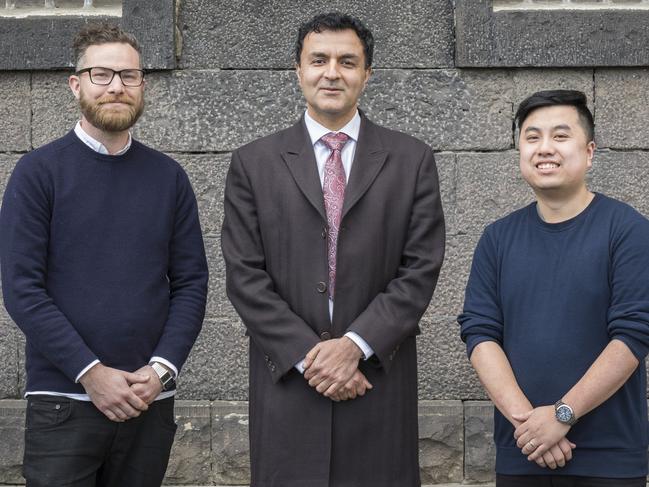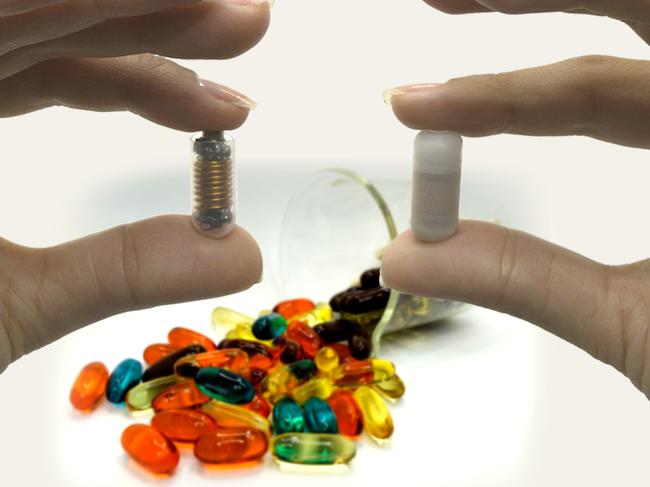RMIT to test gut health in bionic capsule breakthrough
A WORLD-first electronic capsule that can be swallowed to diagnose common gut disorders is on track to hit the shelves within four years.
VIC News
Don't miss out on the headlines from VIC News. Followed categories will be added to My News.
A WORLD-first electronic capsule that can be swallowed to diagnose common gut disorders, is on track to hit the shelves within four years.
More than 200 Victorians will have access to the gas-sensing pill over the next few years, as part of the final trials needed to get the product in the hands of the one in five Australians with a gastrointestinal condition.
The Melbourne designers — material scientists and engineers from RMIT — have taken the first major step towards commercial production by establishing a start-up company.
MUMS’ GUTS A GAME CHANGER FOR KIDS
SMART PILL IS A GUTSY CANCER FIX
US MILITARY FUNDS MELB RESEARCH PROJECT

Atmo Biosciences has been created under the Melbourne-based commercialisation consultancy, Planet Innovation, with their first aim to raise $4 million to fund the next round of trials.
Eight years ago RMIT’s Professor Kourosh Kalantar-zadeh and Dr Kyle Berean were asked by gastroenterologists to improve the current diagnostic breath tests.
They took a silicon-type material Dr Berean had created to measure methane in cattle, and used it to create a vitamin-sized capsule that housed sensors inside to directly measure gases as it passed through the digestive system.
The technology’s aim is to more accurately and quickly diagnose conditions such as irritable bowel syndrome, inflammatory bowel disease, ulcerative colitis and small intestinal bacterial overgrowth.
The real-time feedback the sensors give to the patient and clinician, by sending the data to a mobile phone, could help with diagnosis and also inform corrective diets.
Results from the first human trials, published early this year, found that the device could accurately detect hydrogen, oxygen and carbon dioxide levels in the gut, and could show when food started to be fermented.

“These gases are used as biomarkers for diagnosis currently, but the rate of false-negatives and false-positives is too high for it to be trusted,’ Dr Berean said.
“There is a lot of new data coming out about the role the gut and microorganisms affecting the brain.
“This research is really cutting edge, and we believe we can add to the suite of tools to better understand how the gut functions.”
Atmo Bioscience chief Mal Hebblewhite said with royalties from future sales of the sensor to be paid to the university, the development was a win-win for the state as they worked to get the device to market by 2022.
“It’s exciting for RMIT, but also for the Victorian medical device system,” Mr Hebblewhite said.
“We hope it can be a model for other intellectual property and research at universities and research institutes to be commercialised, getting it to the patients sooner.”


